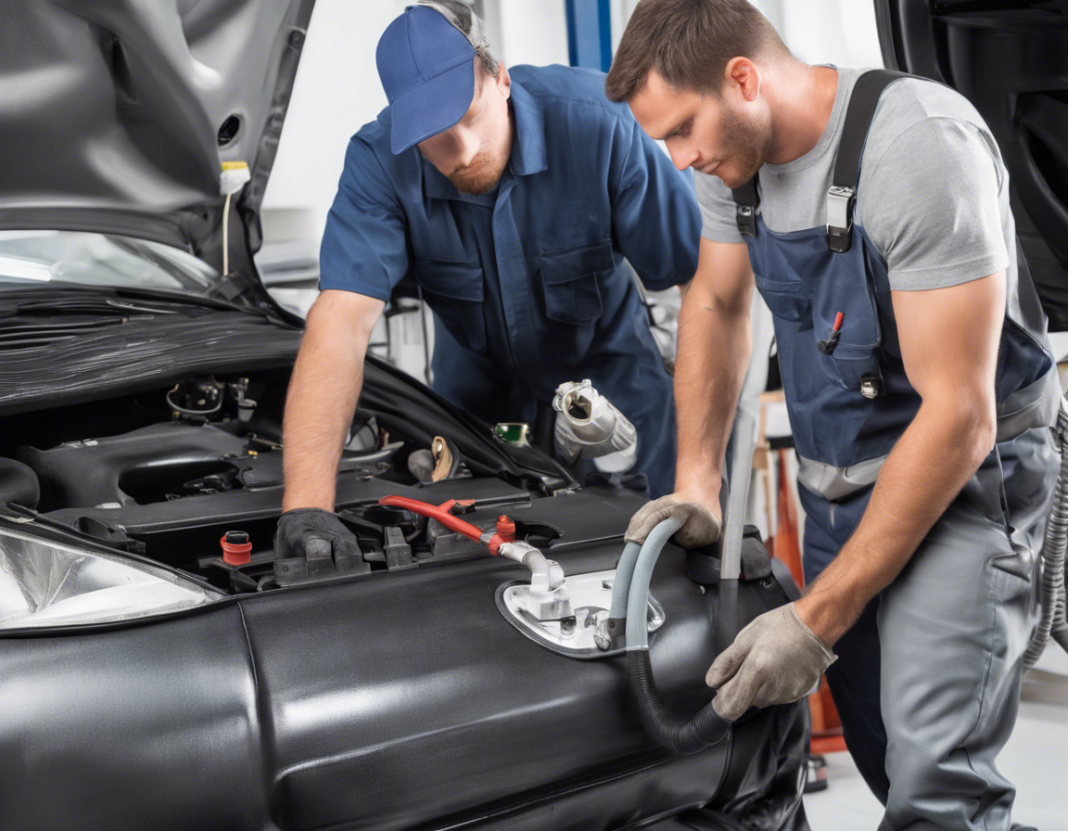When it comes to the cost to repair a car vacuum leak, there are several factors to consider that can influence the final expense. A vacuum leak in a car can lead to various issues such as rough idling, poor fuel efficiency, check engine light illumination, and overall diminished performance. Identifying and fixing a vacuum leak is crucial to ensure your vehicle runs smoothly and efficiently. In this blog post, we will delve into the typical costs associated with repairing a car vacuum leak, the common causes of vacuum leaks, the importance of addressing them promptly, and some FAQs to help you better understand this automotive issue.
Understanding Car Vacuum Leaks
What is a Car Vacuum Leak?
A vacuum leak occurs when there is an unintended crack or hole in the vacuum system of a vehicle, leading to the leakage of air. This disrupts the balance of air and fuel mixture required for the engine to operate optimally. Vacuum leaks can occur in various components such as hoses, gaskets, intake manifold, brake booster, and vacuum lines.
Common Causes of Car Vacuum Leaks
1. Worn-out Hoses: Over time, rubber hoses in the vacuum system can degrade, crack, or become loose, leading to leaks.
2. Faulty Gaskets: Leaky gaskets around components like the intake manifold can result in vacuum leaks.
3. Damaged Intake Manifold: Cracks or warping in the intake manifold can cause vacuum leaks.
4. Faulty Vacuum Lines: Broken or disconnected vacuum lines can disrupt the system’s functionality.
5. Malfunctioning Brake Booster: Issues with the brake booster can also lead to vacuum leaks.
Cost of Repairing a Car Vacuum Leak
The cost to repair a car vacuum leak can vary based on the extent of the damage, the specific component needing attention, and labor costs in your area. Here is a breakdown of the potential expenses you might incur:
1. Diagnosis:
- Initial inspection and diagnosis by a mechanic can range from $100 to $200. This cost can vary depending on the complexity of the issue and the rates of the service provider.
2. Parts Replacement:
- The cost of parts such as hoses, gaskets, intake manifold, or vacuum lines can range from $20 to $200, depending on the component needing replacement.
3. Labor Costs:
- Labor costs for fixing a car vacuum leak can range from $70 to $150 per hour. The total labor time needed will depend on the accessibility of the component and the complexity of the repair.
4. Total Cost:
- Taking these factors into account, the total cost to repair a car vacuum leak can typically range from $150 to $500. However, for more severe cases that require extensive repairs or component replacements, the cost can exceed $500.
Importance of Timely Repair
Addressing a car vacuum leak promptly is vital to prevent further damage to your vehicle and ensure optimal performance. Ignoring a vacuum leak can result in increased fuel consumption, engine misfires, rough idling, difficulty starting the vehicle, and even potential damage to the catalytic converter over time. By investing in timely repairs, you can avoid more costly issues down the road and maintain the efficiency of your vehicle.
FAQs about Car Vacuum Leak Repair
1. How can I detect a vacuum leak in my car?
- Common signs of a vacuum leak include rough idling, hissing noises from the engine, check engine light illumination, and decreased fuel efficiency.
2. Can I repair a car vacuum leak myself?
- While some simple vacuum leaks can be DIY repaired, it is advisable to consult a professional mechanic for accurate diagnosis and proper repair to avoid potential further damage.
3. Are vacuum leaks a common issue in vehicles?
- Yes, vacuum leaks can occur in any vehicle over time due to wear and tear on components or improper installation.
4. How long does it take to repair a car vacuum leak?
- The repair time can vary depending on the severity of the leak and the accessibility of the component needing attention. It can take anywhere from 1 to 4 hours on average.
5. Can a car vacuum leak cause engine damage?
- Prolonged driving with a vacuum leak can lead to engine issues such as misfires or damage to the catalytic converter, impacting the overall performance and longevity of the engine.
In conclusion, addressing a car vacuum leak promptly is essential to maintain the performance and efficiency of your vehicle. By understanding the common causes, costs involved in repairs, and the importance of timely action, you can ensure your car operates smoothly without any detrimental effects of a vacuum leak. If you suspect a vacuum leak in your vehicle, it is recommended to consult a professional mechanic for a thorough inspection and reliable repair services.




